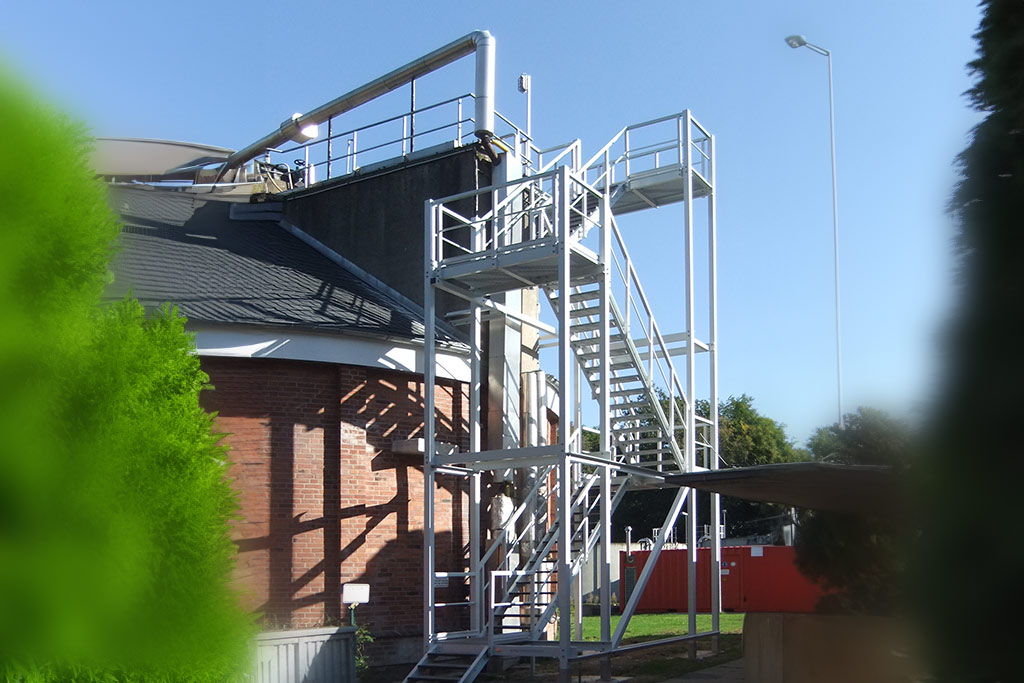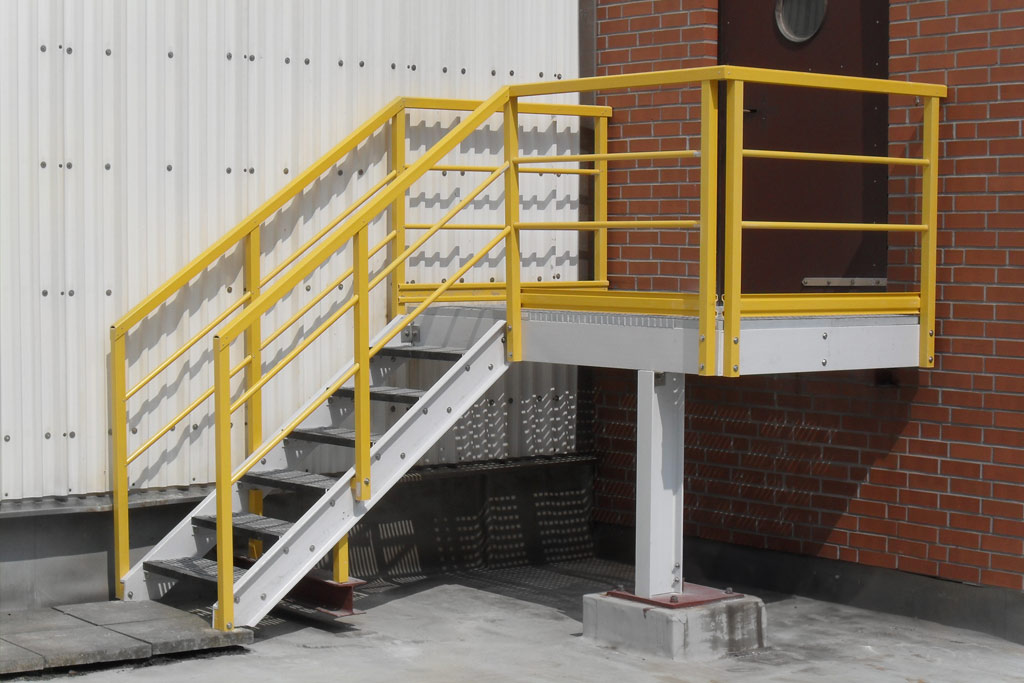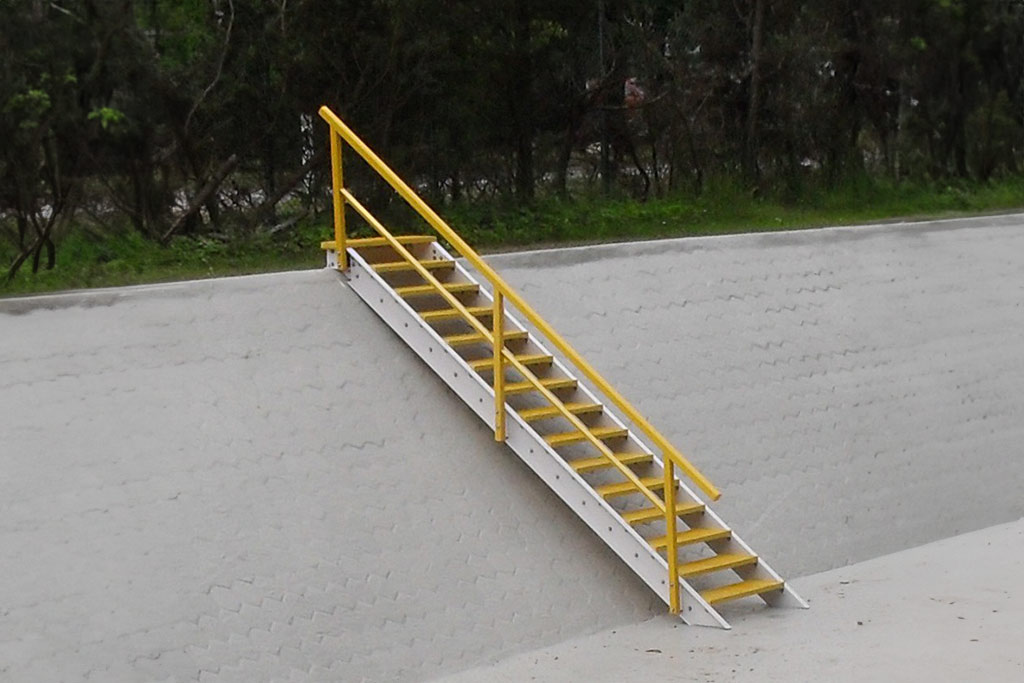GRP stairs and stair towers
The innovative alternative to steel and stainless steel – developed for industry.
Why GRP is the better choice
Corrosion-free and low-maintenance
GRP stairs are the durable alternative to steel, wood, and even stainless steel. They are corrosion-free, do not require coatings, and remain stable over time. This significantly reduces maintenance and operating costs.
Resistant to chemicals and acids
Chemical resistance is crucial in industrial environments. GRP reliably resists aggressive media such as acid vapors, diluted acids, or alkalis—a clear advantage over metal stairs.
Lightweight, stable, and economical
Despite their low weight, GRP stairs are highly resilient. They can be quickly installed and flexibly adapted to the respective system. This makes them an economical solution for a wide range of applications.

Areas of application for GRP stairs in industry

Platform stairs for safe access to buildings
Whether in production halls or technical facilities, GRP platform stairs offer permanently safe access. They are weatherproof, chemically resistant, and retain their stability even in environments with cleaning agents or acid vapors—a real alternative to stainless steel.
Slope stairs for outdoor facilities and sewage treatment plants
In outdoor areas such as retention basins, waterworks, or slopes, GRP slope stairs ensure maximum safety. They are slip-resistant (R13), chemically resistant, and can withstand even wet conditions, snow, or oily residues. Ideal for use in sewage treatment plants or chemical plants.


Industrial and maintenance stairs / stair towers for large plants
GRP industrial and maintenance stairs and complete stair towers are the ideal solution for large-scale plants. They are corrosion-free, low-maintenance, and permanently resistant to chemicals—even when in contact with acids or alkalis. Thanks to their modular design, they can be individually adapted to structural conditions.
Your advantages at a glance
- Corrosion-free and durable
- Chemically resistant (including acids and alkalis)
- Non-slip (R13) in all weather conditions
- Maintenance-free – no coatings required
- Cost-effective alternative to stainless steel